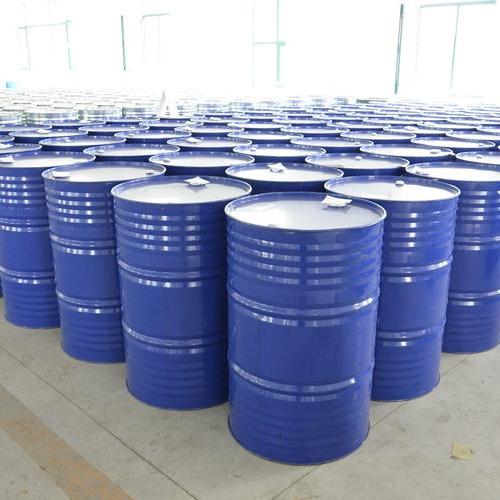Disc brakes are unquestionably the most powerful brakes you can have on your bike, and most modern bikes from commuters to downhill mountain bikes come equipped with them. But for them to be quiet, consistent and powerful, they need some regular maintenance and cleaning. There are many ways to clean your disc brakes, so we talked to industry experts to clarify what is the best way to keep your disc brakes clean and avoid brake contamination.
Whether you have mechanical or hydraulic disc brakes , the issues with disc brakes include all sorts of noise; usually characterised by rubbing and squealing. These are all indicators that you need to clean your disc rotors. Acetic Acid And Sodium Bicarbonate

The common culprit to these brake noises is simple brake contamination or dirt on the disc rotor surface. Oil or any other substances on the disc rotor or pads will reduce friction between the two surfaces, which causes the ear-piercing squeal and also affects performance. Having your brakes working perfectly is crucial no matter if you are riding singletrack trails, downhill mountain biking or gravel racing .
The first solution to eradicating contamination is to clean the disc brakes and brake pads, but there's a lot of uncertainty as to what is the best way to do this - or whether you can ever really rescue contaminated brakes. You don't want to use anything that might leave a residue, but at the same time, you don't want to harm the braking surfaces and system you're cleaning.
We chatted with industry experts; Shimano, Fibrax, SRAM, Juice Lubes and Hope Technology, to see what they recommend for cleaning brake rotors and pads and if there's anything that can be done to save a contaminated brake pad - or whether it's only good for the bin.
When it comes to cleaning bike disc rotors, the general consensus is to use a product that doesn't leave any residue, such as isopropyl alcohol, which can be easily sourced from your local homeware shop. Hope says: "We recommend either methylated spirits or isopropyl alcohol as these both leave no residue on the rotors. Keep away from white spirit as this will leave an oily film.
"If using brake cleaners make sure you use a bicycle-specific one as car brake cleaners sometimes include oil to stop cast iron discs from rusting."
"Disc brakes work best when there is a consistent braking surface created by material transfer from the pad to the rotors. We have found that cleaning with isopropyl alcohol does a good job of maintaining this relationship while removing grime," James Alberts, SRAM's brakes Product Manager agrees.
When it comes to the callipers and brake levers themselves, the brands were again recommending a very basic approach. "We recommend a mild soap and water to clean disc brakes. This is to help avoid contamination of the pads and rotor. Brake cleaners and other sprays are unnecessary. Do not use compressed sprays to clean brakes as these can cause seal swell. We try and protect sealing surfaces as best we can with our design, but spraying a lubricant at the end of your lever will certainly contaminate your seals making your lever feel sluggish, so stick to soap, water, and isopropyl alcohol," Alberts continues.
Although isopropyl alcohol is one recommended product that is not labelled as bike-specific, many brands have a product dedicated to cleaning disc brakes.
"Our Juice Lubes Brake Juice is a bike-specific cleaner, that is formulated to be low in toxicity - this is what makes it kind of seals and pads which are a lot more delicate than say those of a car where seals are much larger and therefore tougher/more resistant to more aggressive and toxic cleaners. This also helps break juice to prolong pad life by not causing any deterioration to the pads. Our brake cleaner won't corrode or cause oxidization to metal either so your callipers remain looking tip top and shiny," Rob Cook of Juice Lubes explains.
As much as you can clean your disc brakes, avoiding contamination in the first place will save you from a lot of headaches. Disc brakes are notorious for getting contaminated, and it doesn't take much for this to happen. It might be a case of you grabbing the rotor with bare hands, some chain lube spraying onto the disc brake, or tubeless sealant getting onto the braking surfaces.
It's really easy to contaminate the disc pads or rotors when you're maintaining or cleaning your bike. But this is not the end of them - all you need to do is to give your disc brakes a good clean following the expert advice.
How and when you clean your bike's disc brakes is important.
"Our advice is that disc rotors should be cleaned after you clean your bike to help avoid contamination. Many people will use a hose to wash dirt and grease off their bikes but the spray can find its way onto your rotors. That's why it's best to leave cleaning the rotors until last. It's important also not to use the brakes during cleaning because the grease from the rotors can make its way onto the pads," Ben Hillsdon from Shimano points out.
"The most common contaminants we see are from chain lube overspray and tyre sealants. Be careful to get your chain lube where you want it. Also, removing the rotor from a wheel when replacing tire sealant or installing a new tire can help prevent accidental contamination," SRAM's Alberts says.
Ellis Blackman from Fibrax points out another frequent reason for contamination: "With the ever-increasing use of spray lubes, silicone polishes etc. contamination by overspray is a HUGE issue - If anything is sprayed near a bike, it'll contaminate the brakes."
For this, there is a simple solution.
"Don’t use sprays near your bike, if you have to use something, walk several meters away from the bike, spray into a rag and then wipe over [the parts]."
Once a contaminator gets to your disc brakes, it will stick to the disc rotor and the brake pad. Cleaning the disc rotor might be as easy as a wipe with some isopropyl alcohol, but cleaning disc brake pads is a more complicated matter.
Bicycle disc brake pads are made of different compounds, the most general ones being sintered or organic , and they absorb some of the contaminators, whether it's oil, sealant or anything else. When you look at contaminated disc brake pads, you might notice they have a shiny layer to them. That layer doesn't grip the rotor very effectively, meaning that your braking power is compromised.
There are many ways to clean contaminated brake pads, but you should be cautious when trying some of the home remedies. Some suggest giving the disc brake pads a good rub with sandpaper to remove the top layer, some say you should stick them in the oven or bake them with a blowtorch to burn off the contaminants. None of our experts suggested these solutions and rather said that the only way to remedy a contaminated disc brake pad is to replace it.
"To maintain consistent performance we recommend replacing disc brake pads should they become contaminated," SRAM's Alberts confirms.
That's a stance backed up by pad manufacturer Fibrax, who says contaminated brake pads are fit only for the bin.
Hope was the only one suggesting there might be a way to salvage those contaminated brake pads: "If the pads have surface contamination you can sometimes resurrect them by rubbing the surface on sandpaper. Just make sure you put the pads back on the same side as they may be worn at an angle."
Suvi joined off.road.cc in 2022 as a tech writer and brought in her enthusiasm for gravel and long-distance riding. She's a lover of underbiking and exploring on the bike both on and off-road, especially if it means finding more great cafes and some good viewpoints.
Refreshing to read an article that stays clear of pushing expensive oversold proprietary products in fluorescent plastic trigger-head bottles! Soap and water, or meths!
organic pads can sometimes be baked to neutralise the effect of a comtaminant. maybe dont use the kitchen oven though.
for sintered pads .. remove from caliper, spray with window cleaner, wait a few seconds and rinse. clears most comtaminants and surface glaze effortlessly.
for rotors .. remove from wheel and carefully wipe down / wash with neat household bleach or oven cleaner. rinse thoroughly and dry completely. reinstall and proceed with brake-in process.
"If using brake cleaners make sure you use bicycle specific ones as car brake cleaners sometimes include oil to stop cast iron discs from rusting."
I call bullshit on that.
off-road.cc Editorial and general enquiries: info@off-road.cc Advertising and commercial: sales@off-road.cc
All material © Farrelly Atkinson (F-At) Limited, Unit 7b Green Park Station BA1 1JB. Tel 01225 588855. © 2008–present unless otherwise stated.
Privacy policy and terms and conditions of use.
Mountain bike, bikepacking and gravel bikes. Reviews, buying advice and news. off-road.cc is dedicated to bringing you the best coverage of all off-road riding

Ch3cooh Our sister site for road bikes... road.cc Our sister site for e-bikes... ebiketips.co.uk